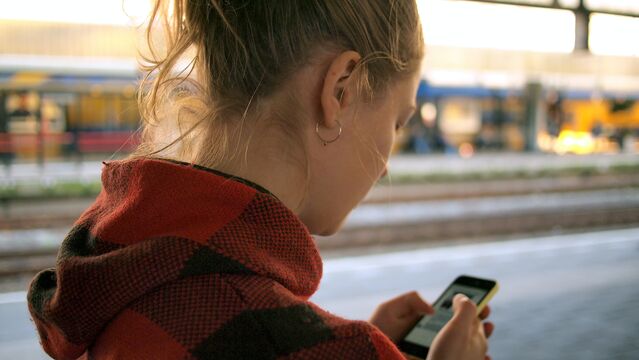Optimism
Elon Musk Might Change Twitter but You Can Change the Channel
Learned optimism helps us stay in control and stay hopeful.
Posted November 10, 2022 Reviewed by Vanessa Lancaster
Key points
- Learned helplessness is when you have learned you are helpless to change a situation. Learned optimism is changing your responses and actions.
- Having choices means having control, and being in control can help you be hopeful.
- Social media is important and valuable. But it isn't imperative. You can leave if you want.

We all know that stress is a part of life. Everyone faces challenges, some of which are short-lived and relatively minimal (rush hour traffic), others much more serious and long-term, like health or financial concerns.
Some of our stress is less specific to ourselves but comes from concerns about the state of the world. This year, the midterm elections – a common source of stress for many Americans, and even more so in recent years – came on the heels of Elon Musk’s acquisition of Twitter.
Musk has publicly stated his intention to reconsider Twitter’s policies regarding who and what can be posted. This includes Twitter’s decision to indefinitely suspend Donald Trump’s account and their policy of removing tweets by anyone deemed to spread misinformation, especially about key topics such as national elections.
Since Musk announced that he was revisiting such restrictions, many people reacted with deep concerns about how these policy changes might change everything from their personal social media feeds to the outcome of the election. The level of stress and concern has also prompted many organizations this week to suspend their advertising campaigns on Twitter.
These reactions are not necessarily unfounded – there is plenty of evidence of both how polarized our political landscape has become and how influential social media is on critical decisions we make. However, while it’s natural to feel stress and pessimism when important events seem out of our control, we are not actually at the mercy of outside forces as much as we think.
Learned helplessness is real, but so is learned optimism.
The concept of "learned helplessness" is well known – at its most basic, this is the idea that if we try to control outcomes and an outside actor keeps overruling our actions, we learn to give up. Imagine, for example, working for a boss who you inform is hiring dishonest people who keep stealing from the company. If the boss doesn’t listen and continues to hire people who steal, eventually, the employee will give up trying to help protect the company.
They have learned they are helpless to change the situation. Arguably, the risk of learned helplessness around something as existential as how much a social media platform influences national elections (or any election) is more distressing than a job you can leave.
So how do you avoid falling prey to learned helplessness? By embracing learned optimism. It’s not quite the opposite of learned helplessness, which generally is a response to another person (or other outside force) controlling outcomes. Learned optimism is about changing your own responses to situations and, where possible, even changing your own actions. In fact, just realizing you have choices that are within your control makes you regain a sense of power that can reduce a sense of dread and hopelessness.
What are practical ways to learn optimism around issues like the role of social media?
Change the channel. First of all, remember that you can choose which platforms to use. You don’t have to be on Twitter. In addition to popular platforms like Facebook and Instagram, there are plenty of newer or less well-known alternatives available. Some of them, like Mastodon, are specifically attracting others who want a Twitter alternative, according to an article this week from NPR. You can also filter on most platforms what information you receive (to varying degrees), even blocking or “muting” certain users.
Turn it off altogether. Not only can you move to a different platform, but remember that you don’t have to be on any social media platform at all (ask anyone over forty – they all can recall a time of no social media!). At first, that might feel too drastic, but people do it, and they survive just fine.
Cincinnati Bengals quarterback Joe Burrow has publicly said that he deletes social media from his phone and rarely looks during the week. According to an article in USA Today, he said it prevents him from being distracted. You don’t have to turn off social media for months at a time, but you can certainly take a break for a few days or – gasp! – even a few weeks.
Keep perspective. It’s important mentally to distinguish the helplessness one can feel when things like a health scare impact our lives and events that – even in the worst possible outcome – we can recover from. While we may be frustrated (or even furious) when a particular candidate we voted for doesn’t get elected or we see information online that we know to be untrue, in most instances, we have choices.
We can write letters, participate in peaceful demonstrations, and contribute financially to (or volunteer with) organizations that support the causes we believe in. That doesn’t mean we aren’t entitled to feeling helpless in the moment. Often, our optimism lies in our ability to feel a sense of control. Few of us can cure our own cancer or save a loved one from financial ruin.
We must have some emotional energy reserved for these sorts of events. But learning optimism also means distinguishing events where we actually are incapable of changing and those where our choice is our power. And we can certainly choose not to be directly and daily impacted by what is or isn’t permitted on Twitter.
You can’t control others. Luckily, taking control of your own life can be immensely satisfying.
Optimism is not about having rose-colored glasses. It isn’t about refusing to see reality. Nor is optimism something one just wills into existence. It must be learned and practiced again and again. It is not about changing others’ decisions but changing our own. And that includes our decision to manage our reactions to events that are outside of our control.
Optimism is about much more than “being happy.” It’s about recognizing that we have choices and deriving a sense of hopefulness from the power to make decisions for ourselves. Put simply. Hope is a choice.




